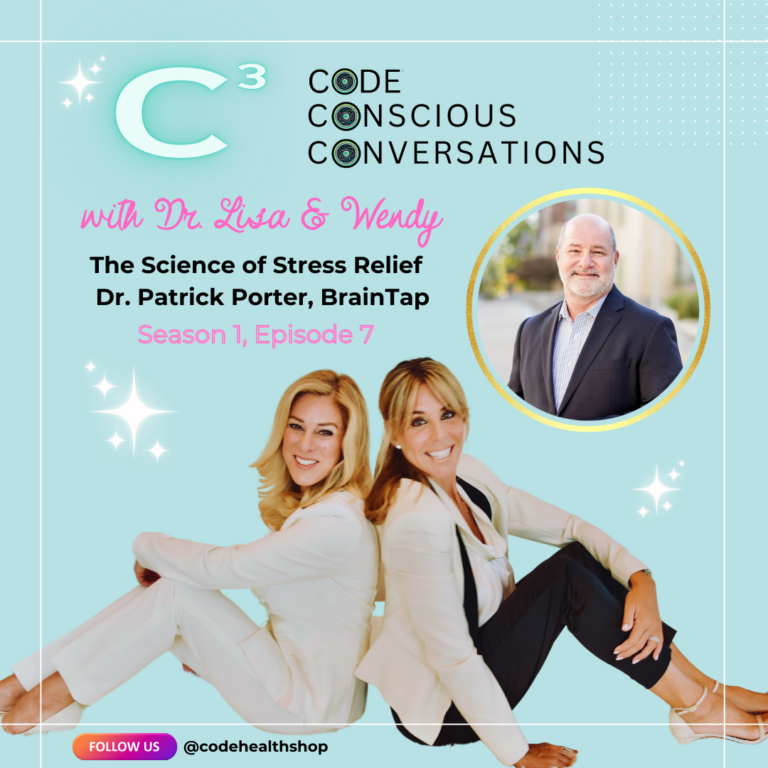Have you ever wondered why some people maintain vibrant energy and resilience well into their later years while others develop chronic diseases despite following standard health advice? The answer might lie in a revolutionary approach to wellness that goes beyond conventional treatments—one that focuses on the health of your mitochondria, the ancient cellular components that control virtually every aspect of your physical wellbeing.
Listen to this podcast now at C3 Podcast or join us on Apple Podcasts or Spotify.
What Are Mitochondria and Why Do They Matter?
Mitochondria are often described simply as the “powerhouses of the cell,” but this barely scratches the surface of their true impact on human health. What most people don’t realize is that mitochondria aren’t just cellular components—they’re actually ancient bacteria that were incorporated into our cells approximately 1.5 billion years ago in what scientists call the “endosymbiotic theory.”
This revolutionary symbiotic relationship gave our cells a massive competitive advantage: the ability to produce substantially more energy using oxygen as fuel. This increased energy production enabled greater complexity, dynamic growth potential, and ultimately the evolution of complex organisms like humans.
But mitochondria do far more than generate energy. They:
- Create the cellular signaling needed for survival pathways
- Regulate cell growth and movement
- Provide organ-specific functions (brain mitochondria function differently than heart mitochondria)
- Form social networks with other mitochondria to enhance resilience
- Control cell death and renewal processes
This explains why mitochondrial dysfunction lies at the heart of virtually all chronic diseases—from heart failure and neurodegeneration to cancer and metabolic disorders.
The Surprising Social Nature of Mitochondria
One of the most fascinating recent discoveries about mitochondria is their social behavior. Just as humans thrive when socially connected and struggle when isolated, mitochondria function optimally when networked together.
In healthy tissue like the heart, mitochondria form interconnected networks resembling “strings of pearls.” But in conditions like heart failure or diabetic cardiomyopathy, these mitochondria become isolated and fragmented. This disconnection leads to increased free radical generation, cellular dysfunction, and an inability to handle stress—creating a cascade of health problems.
This cellular disconnection mirrors what happens at the macro level in human societies, suggesting that the principle of “stronger together” applies at every level of biological organization.
The Three Types of Mitochondria You Never Knew About
While most people think all mitochondria are identical, research shows that even within a single cell—like a cardiac muscle cell—there are at least three distinct types of mitochondria with unique functions:
- Interfibrillar mitochondria – Located inside the cell, these generate most of the energy needed for cellular functions
- Subsarcolemmal mitochondria – Positioned just under the cell membrane, these focus primarily on adapting to environmental signals and stressors rather than energy production
- Perinuclear mitochondria – Surrounding the cell nucleus, these appear to regulate mitochondrial turnover and renewal through a process called mitophagy
This specialization demonstrates the sophisticated complexity of our cellular energy systems and explains why different interventions may affect various aspects of cellular function.
Beyond Muscle Biopsies: The Revolutionary MeScreen Test
Until recently, assessing mitochondrial function required painful muscle biopsies—an invasive procedure where a large needle removes a piece of muscle tissue for laboratory analysis. This limited mitochondrial testing to research settings, making it inaccessible for most people concerned about their cellular health.
The breakthrough MeScreen test changes everything by using just a few drops of blood from a simple finger stick. How does it work? Your blood contains your entire biochemical environment—capturing all the effects of your nutrition, stress levels, environmental exposures, and genetic factors.
The dried blood sample is reanimated in a laboratory, and your unique biochemistry is transferred to cells that have never been exposed to it before. Researchers then measure how your biochemical environment affects multiple aspects of mitochondrial function:
- Basal energy production
- Response to stress
- Energy generation pathways (efficient mitochondrial pathways vs. less efficient glycolysis)
- Free radical production
- Mitochondrial networking and connectivity
This comprehensive assessment provides an objective picture of your mitochondrial health—something that asking “do you feel better?” after an intervention simply cannot accomplish.
The Gut-Mitochondria Connection You Need to Know About
One of the most exciting frontiers in mitochondrial research involves the connection between gut health and mitochondrial function. While many people understand the importance of gut health, few realize that mitochondria and gut bacteria share a common ancestry as bacteria.
This shared evolutionary history creates a natural communication channel between your gut microbiome and the mitochondria in every one of your cells. Researchers now believe this gut-mitochondria axis might explain how digestive health influences everything from energy levels to brain function.
Just as your gut is sometimes called your “second brain,” mitochondria throughout your body may serve as receiving stations for signals originating in your digestive system. This biological network represents a promising new approach to understanding disease development and treatment.
Why Universal Approaches to Mitochondrial Health Often Fail
If you’ve tried various trendy interventions like cold plunging, red light therapy, fasting, or specialized supplements with mixed results, there’s a good explanation: mitochondrial function is highly individualized.
The effectiveness of any intervention depends on your unique:
- Genetic makeup (particularly mitochondrial DNA from your mother)
- Current mitochondrial health status
- Environmental exposures
- Stress levels
- Sleep quality
- Nutritional status
What works brilliantly for one person may do little for another. This explains why a one-size-fits-all approach to health optimization often produces disappointing results.
How Your Mind Affects Your Mitochondria
One of the most surprising connections is how your thoughts and emotions directly impact mitochondrial function. Research shows that chronic stress, anxiety, depression, and PTSD all disrupt mitochondrial energy production and increase damaging free radicals.
Conversely, positive thinking patterns can enhance mitochondrial resilience and function. This mind-mitochondria connection explains why mindset practices aren’t just psychological tools but have real physiological effects at the cellular level.
The Future of Mitochondrial Medicine
The frontiers of mitochondrial research include some truly revolutionary possibilities. One of the most promising is mitochondrial transplantation—harvesting healthy mitochondria from a person’s skeletal muscle and injecting them into damaged tissues like the heart to restore function.
Early animal studies show that this approach can actually reverse heart failure, suggesting that we may one day have the ability to regenerate tissue function by repopulating organs with fresh, functional mitochondria.
Another exciting direction involves personalized mitochondrial medicine—testing individuals’ responses to various interventions and creating customized protocols that work specifically for their unique biology. This approach could eliminate the years of trial and error many people experience when trying to optimize their health.
Small Steps Toward Mitochondrial Health
While advanced testing and treatments are valuable, there are simple steps anyone can take to support mitochondrial health:
- Prioritize consistent sleep – Mitochondria perform critical repair functions during quality sleep
- Practice stress management – Chronic stress significantly impairs mitochondrial function
- Focus on anti-inflammatory nutrition – Inflammation damages mitochondrial membranes
- Engage in appropriate exercise – Both too little and too much exercise can harm mitochondria
- Consider time-restricted eating – Giving your cells periods without food activates mitochondrial renewal
- Reduce toxin exposure – Many environmental toxins directly damage mitochondrial function
- Maintain social connections – Remember that isolation affects both human and mitochondrial health
Remember that small, consistent changes often produce better results than dramatic but unsustainable interventions.
The MeScreen Advantage
For those serious about understanding and optimizing their mitochondrial health, the MeScreen test provides objective data about your current status and how various interventions affect your cellular function.
Rather than guessing or following generic advice, this approach allows you to determine exactly what works for YOUR unique biology. As Dr. Hemal Patel explains, “We’re not after individuals who are going to do these crazy things. We really want to try to get people to come up with a lifestyle that makes their mitochondria healthy and more resilient in the long term.”
Remember that your mitochondrial health represents one of the most fundamental aspects of your overall wellbeing—one that influences everything from your daily energy to your long-term health outcomes.
To learn more about this groundbreaking approach to health optimization, tune into the new episode on the C3 Podcast: Code Conscious Conversations featuring Dr. Hemal Patel, renowned mitochondrial expert and professor at UC San Diego. We dive into the science behind mitochondrial function, practical strategies for cellular optimization, and how understanding your mitochondrial health can transform your approach to preventing chronic disease.
🎧 NEW EPISODE: Dr. Hemal Patel: The Mitochondrial Connection to Preventing Chronic Disease
Listen to this podcast now at C3 Podcast or join us on Apple Podcasts or Spotify and visit https://mescreen.com for more information about Dr. Patel’s work and to order your MeScreen test. Use code “CODE” for $100 off your test!







